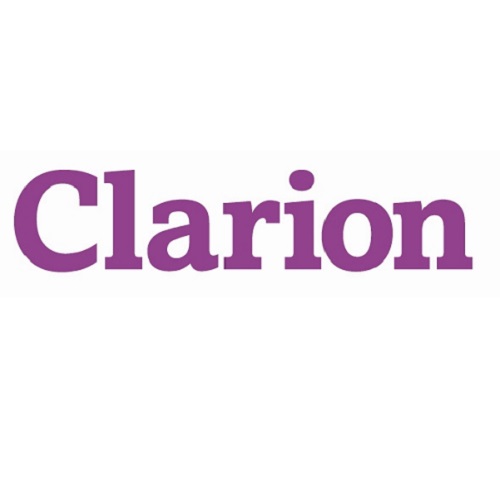Celebrating the UK’s healthcare and life sciences sectors

Life sciences and medical technology under the microscope
They say science gathers knowledge faster than society gathers wisdom. However, this past year we have become quick to learn as we have become accustomed to living with the COVID-19 pandemic. While we have become more reliant on research, science, data and tech, the life sciences, pharmaceutical and healthcare sectors have experienced rapid innovation in an attempt to meet our new health demands.
Society’s dependence on the development of new science and technologies has never been more apparent than in the pandemic and the speed at which new vaccines affording protection against COVID-19 have been developed is unprecedented.
The world looked on as the UK was the first to devise a COVID-19 vaccine, and then a second - a true representation of the UK’s leading life sciences sector and no small feat. Only five years ago, if met with a health threat the size of COVID-19, it’s safe to assume that we wouldn’t have arrived at a solution as quickly as the nine months it took to develop the first vaccine. Although development continues in the face of new variants, the innovation is thanks not only to our brilliant scientists but to the extensive research, data capture and analysis enabled by technological advances.
COVID-19 has created a step change, not only in the perception and importance of science, health, and wellbeing but also in relation to how innovation across these important sectors can significantly improve our lives. As many sectors accelerated their tech plans to meet the new ways of working, within the world of medicine the opportunity to innovate has reached vast scales resulting in a medical technology (Med-Tech) and healthcare IT boom.
Celebrating the science
So, what do we know about the sectors that have been pulled into such sharp focus? Globally, the life sciences and pharmaceutical sectors are responsible for life changing treatments and technologies as well as wide ranges of products for the medical and consumer health markets with the industry expecting to reach >$2 trillion in gross value by 2023.
The UK itself has a formidable health and life sciences ecosystem. With the sector being a major component of the current economic base of the UK, it is widely distributed, bringing significant jobs and growth to virtually every region. The industry is heavily commercialised and immersed in innovation with pharmaceutical and technology companies. The digital health sector sits within core Med-Tech activities as the largest by employment spread across the UK and is one of the highest by volume of businesses across the sector. Core MedTech SMEs account for almost half of the total number of life sciences SMEs in the UK.
The sector is never stagnant and remains poised for change. With the pharmaceutical sector continuing to be one of the UK’s largest manufacturing exporters, on a global scale the UK is contributing to life changing treatments and technologies as well as wide ranges of products for the medical and consumer health markets.
On a regional scale, the Yorkshire health ecosystem is unrivalled; it has local connectivity with our health clusters and universities, leading the way in academic excellence. This, combined with the majority of NHS national offices based in the area being intertwined with the private, public and third sectors, means collaboration achieves effective and innovative solutions to the world’s health issues from the north of England.
Innovation and opportunity
Life sciences, Med-Tech and healthcare offer distinctive opportunities to launch and accelerate investor growth ambitions in the UK and beyond. The Leeds City Region in particular, an internationally recognised hub for life sciences and healthcare, boasts six significant government health headquarters, including NHS England, NHS Digital, Public Health England, NHS Leadership Academy, Health Education England and most recently, the newly formed NHS X. It is the decision-making centre for national policy with over £130 billion in funding for NHS commissioning, leadership, and digital advancement. In addition, the Yorkshire and Humber region has some of the most accessible and forward-thinking routes into the NHS. The region is both harbouring and attracting interest to its already strong ecosystem.
Current areas of focus and opportunity for the region include personalised medicine and diagnosis, healthcare IT and Med-Tech solutions and devices. As a hotbed of innovation, support is available for businesses wishing to invest in the area. The most recent business opportunities are within Woundcare and regenerative tissue; the UK cell and gene therapy market is expected to be worth £10 billion by 2035.
Businesses in the region are capitalising on this and other technologies, including stem cell research and advanced therapy medicinal products. In February 2021, Clarion, along with other partners, joined forces with the Department for International Trade and the Leeds City Region to advocate the opportunities in Woundcare and skin integrity, to showcase the talent and opportunities to collaborate with companies in Leeds City Region to help to eliminate the wider impact of wounds.
Support and expertise are available for inward investors to the region, enabling businesses to hit the ground running. New additions will join the largest and most powerful city region economy in the UK outside London and be part of a thriving health and life sciences’ ecosystem where being part of the innovation doesn’t just save lives but improves our day to day and long-term health position.
How we can help
Collaboration, business strategy and innovation continue to be at the heart of the conversations we are having across the sector and within our network.
For assistance with commercialising your health tech or medtech solution please do not hesitate to get in touch with Sue Streatfield (Pharmaceutical and life sciences lead) or Caroline Broad (Business Development Manager). In addition if you are interested in collaborating within the region's health and life sciences’ ecosystem, the team would be delighted to introduce you to their network.





















